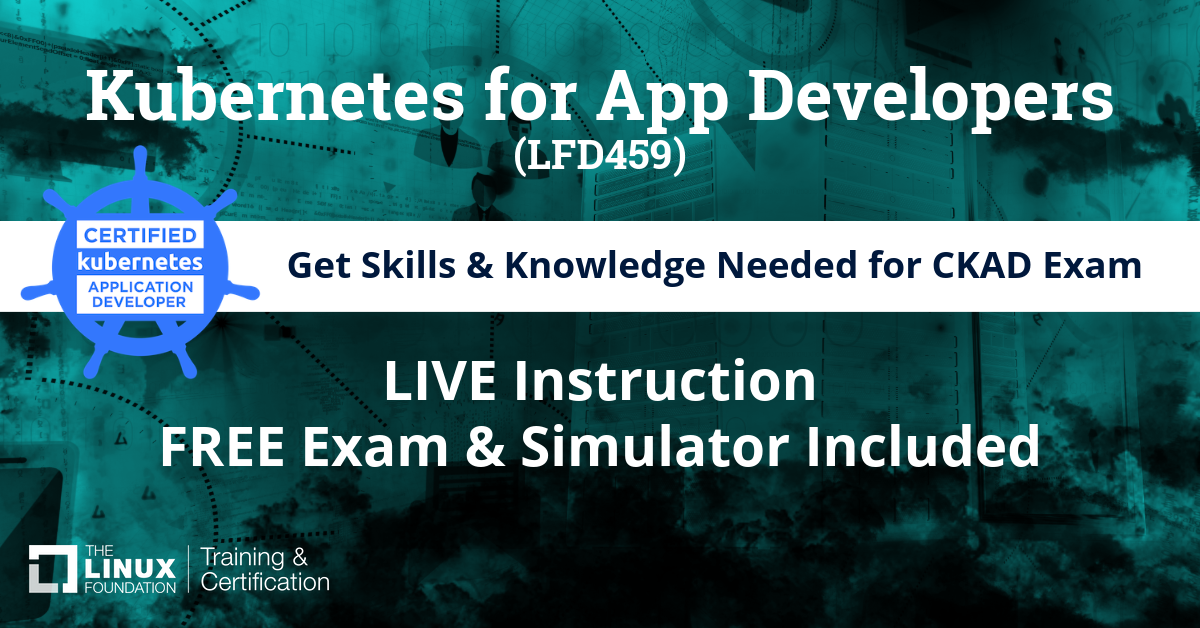Learning to build Kubernetes applications will open up career opportunities in high-demand roles in DevOps, cloud engineering & containerization roles. Using Python, this course teaches how to define application resources & use core primitives to build, monitor & troubleshoot scalable applications in Kubernetes — including working with network plugins, security & cloud storage to deploy applications in a production environment.
In this live, instructor-led course you will learn with a cohort of fellow IT professionals while gaining key knowledge & skills related to the Certified Kubernetes Application Developer (CKAD) certification exam. Course enrollment includes:
→ FREE CKAD exam registration: 12 months to schedule with one retake
→ FREE CKAD exam simulator: 2 attempts
→ 12-month access to course materials















